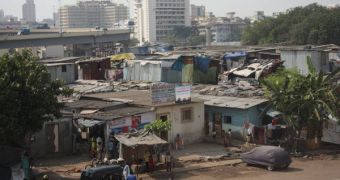There's not a doubt in anyone's mind that children living in poverty are subjected to many deprivations, which can severely affect them in the long run in a number of ways. Health problems are the most often, as parents don't have the means to ensure that their kids live a healthy life. In addition, those young ones who do go to school tend to lag behind in learning, and thus create the danger of a vicious circle, in which their children will in turn act the same way, The Washington Post reports.
One of the most common impairments that can be encountered in poor children from the US to India and Africa is that of their working memory. On account of the high amounts of stress they are subjected to since they are very small, the kids find it difficult to organize their thoughts and to respond to changes in their environment in real time.
“There's been lots of evidence that low-income families are under tremendous amounts of stress, and we know that stress has many implications. What this data raises is the possibility that it's also related to cognitive development,” the leader of the current research, Cornell University (CU) Professor of Human Ecology Gary W. Evans, says. A paper detailing the finds appeared in last week's online issue of the journal Proceedings of the National Academy of Sciences (PNAS).
“This is a significant advance. It's part of a growing pattern of understanding how early life experiences can have an influence on the brain and the body,” the Head of the Rockefeller University in New York (RUNY) laboratory of neuroendocrinology, Bruce S. McEwen, adds. The situation is getting increasingly worse by the month, as the global economic downturn starts affecting more and more areas.
Naturally, underdeveloped countries, which were already vulnerable to shifts in economy even before the crisis, are now bearing the brunt of the downturn, with larger and larger numbers of people losing what jobs they had and being left unable to provide for their children.
“We know low-socioeconomic-status families are under a lot of stress – all kinds of stress. When you are poor, when it rains it pours. You may have housing problems. You may have more conflict in the family. There's a lot more pressure in paying the bills. You'll probably end up moving more often. There's a lot more demands on low-income families. We know that produces stress in families, including on the children,” Evans stresses.
“These are all physiological indicators of stress. The basic idea is this allows you to look at dysregulation resulting from stress across multiple physiological systems,” he concludes.

 14 DAY TRIAL //
14 DAY TRIAL //